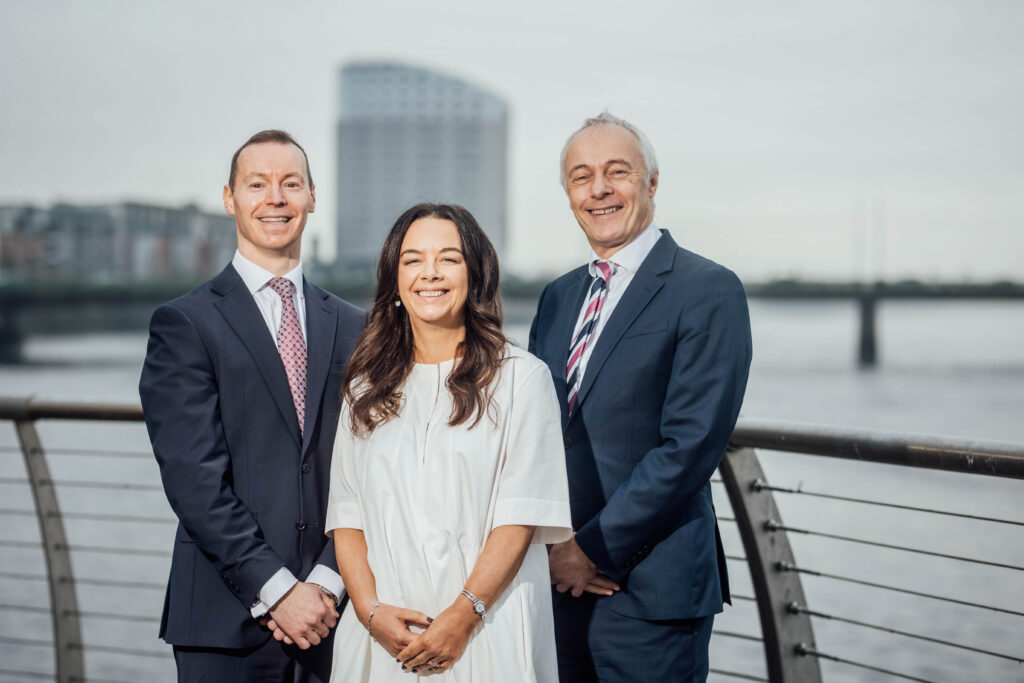When parents entrust their children’s care to top medical professionals, they expect only the highest standards of safety and expertise. That trust has been shaken to the core after a major hip surgery audit revealed that nearly 70 percent of operations on young children at two leading Irish hospitals were unnecessary. This revelation has left thousands of families asking how their children could undergo such significant intervention without clear medical need, and what it means for their future health and wellbeing.
This blog explores the landmark findings of the 2025 hip surgery audit, what led to these unnecessary surgeries, the far-reaching impact on families, and the urgent reforms now demanded of Ireland’s healthcare system. If your child has been affected, you’ll also find resources for advice, support, and your next steps.
Understanding the Hip Surgery Audit
What Prompted the Review?
The audit traces its origins to a protected disclosure in 2024, which raised concerns about inconsistent standards for developmental dysplasia of the hip (DDH) surgery across three hospitals: Children’s Health Ireland (CHI) at Temple Street, CHI at Crumlin, and the National Orthopaedic Hospital Cappagh (NOHC). Suspicion grew that some children were being recommended for surgery on clinical grounds that would not be accepted elsewhere, triggering an urgent, joint audit by the HSE, Children’s Health Ireland, and NOHC.
How Was the Audit Conducted?
A group of independent reviewers examined a randomised, anonymised sample of 147 hip surgeries carried out between 2021 and 2023. The panel included fourteen surgeons and looked at the standard clinical criteria applied to each case, focusing on children aged one to seven. Their task was clear: determine if each operation met the agreed threshold for surgical intervention.
Laying Bare the Audit Findings
The audit’s results are alarming:
- Temple Street Hospital: 60 percent of reviewed surgeries (51 out of 85 cases) did not meet the accepted clinical criteria.
- National Orthopaedic Hospital Cappagh: The figure here was even higher, with 55 out of 70 surgeries (79 percent) found to be unwarranted.
- CHI at Crumlin: Just one of 63 procedures was deemed unnecessary.
Combined, this data shows that 69 percent of hip surgeries at Temple Street and Cappagh between 2021 and 2023 were unjustified. Extrapolated, nearly 500 children may have undergone major surgery they did not need.
While clinical judgement can vary, the gulf between outcomes at Crumlin (with only one unnecessary case) and the other two hospitals cannot be explained solely by individual interpretation or error. The review highlighted a systemic failure to standardise decision-making and ensure rigorous peer review.
The Cost of Clinical Variability
Shockwaves followed the discovery that at least one child experienced direct adverse consequences from an unnecessary operation. The panel concluded that differences in clinical standards between hospitals placed children at risk and signalled the urgent need for system-wide reform.
The Human Impact of Unnecessary Surgery
For families, these revelations are as devastating as they are bewildering. Ahead of the audit’s publication, more than 2,200 families whose children underwent hip surgery over the preceding 15 years were informed and offered support.
Stories From Real Families
A mother of a six-year-old non-verbal child learned her daughter’s 2023 operation was among those found to be unnecessary.
“To hear now that it was unnecessary is devastating. Absolutely devastating. We trusted what we were told and why wouldn’t you trust it?”
she told local media. Her family will never forget their daughter’s pain and struggle as she recovered from a major surgery that, according to the audit, never should have happened.
Another parent described sending thirty unanswered emails seeking post-surgery clarity, finally receiving a response only after legal assistance. Many families report feeling adrift, unsure whether their child’s pain, mobility issues, or psychological distress might have been avoided entirely.
Political, Medical, and Public Repercussions
Demand for Accountability
The audit’s findings have dominated debates in the Oireachtas. Opposition spokespeople called the figures
“a national scandal”
and flagged deep distress among affected families, driven by poor communication and an apparent lack of clinical governance. Politicians across the spectrum have demanded stronger transparency, proper consent processes, and robust oversight.
Key Voices
- Marie Sherlock (Labour) highlighted a
“distressing picture”
around governance, informed consent, and follow-up care.
- Pádraig Rice (Social Democrats) credited whistleblowers for bringing the problem to light, but criticised the system’s slow response.
- The Taoiseach and Minister for Health, Jennifer Carroll MacNeill, immediately accepted all recommendations and promised rapid organisational reform.
Bernard Gloster, HSE Chief Executive, acknowledged the gravity of the audit findings, vowing to prevent anything like this from occurring again.
What Led to Unnecessary Surgeries
The audit identified significant differences in surgeons’ thresholds for recommending hip interventions. While some degree of clinical variation is expected, a near-70 percent rate of unwarranted procedures points not to judgement, but to a lack of clear, consistently applied standards and peer oversight.
Calls for Systemic Change
Urgent reforms are now in motion, including:
- Recalling nearly 500 affected children for independent review by orthopaedic surgeons with no prior links to Temple Street or Cappagh.
- Making peer review a routine part of decision-making for all paediatric hip procedures across CHI hospitals.
- Improving communication, support and follow-up for families.
The Health Service Executive has also launched a wider review of almost 1,800 children who underwent surgery at Temple Street and NOHC since 2010. Dedicated helplines and patient advocacy groups have been set up to help families directly.
Next Steps and Support Resources for Families
For families confronting this troubling news, the pathway forward can feel unclear. Key recommendations include:
- Request an Independent Clinical Review: Use the recall process to obtain a fresh evaluation of your child’s case and current health status.
- Get Support: The helpline at 1800 807 050 (Mon-Fri 8am-8pm, Sat-Sun 9am-5pm) is available for parents seeking information and practical support.
- Join Advocacy Groups: Peer networks and independent patient support organisations can offer guidance and understanding.
- Seek Specialist Legal Advice: For families worried about the consent process, surgical impacts, or potential negligence, specialist legal firms can help. For example, HOMS Assist offers expert legal guidance and representation in medical negligence cases, supporting families through every stage of the claims process.
-
- Establish whether clinical standards were met.
- Advise if there is a viable medical negligence claim.
- Support you in securing compensation or remedial care.
What This Audit Means for Healthcare in Ireland
A System at a Crossroads
The exposure of unnecessary hip surgeries is forcing rapid reflection and change in Ireland’s paediatric health system. The findings underline the need for:
- Standardisation of Care: All children deserve the same rigorous criteria for medical intervention, no matter where they are treated.
- Stronger Oversight: Systematic peer review and clear-governance structures should leave as little room as possible for harmful variability.
- Transparency and Empathy: Families must be kept informed, respected in the consent process, and supported if things go wrong.
Above all, this episode highlights that a system’s trustworthiness is built not just on technical excellence, but on openness, continuous learning, and the willingness to be accountable when things go wrong.
The Importance of Whistleblowers and Independent Reviews
This crisis only came to light because of whistleblowers and a robust independent review process. Their actions have proved indispensable in identifying systemic risks and protecting patient safety where established governance failed.
How to Take Action if Your Family Is Affected
If your child underwent hip surgery between 2010 and 2023 at CHI Temple Street or NOHC Cappagh, practical steps include:
- Contact the recall and support helpline at 1800 807 050 for initial guidance.
- Arrange for an independent review of your child’s records and current health.
- Keep a record of your experiences and correspondence with medical staff.
- Consider confidential discussions with medical negligence specialists; for impartial advice and to explore your legal options, you can contact HOMS Assist.
Families experiencing anxiety, distress, or uncertainty are urged not to struggle alone. Independent support and professional advice can help you understand your position and options.
Building Trust and Safeguarding the Future
This audit is a wake-up call. Thousands have been affected, but its lessons reach far beyond hip surgery. Ireland’s children deserve healthcare governed by strict standards, robust accountability, and genuine care. By listening to affected families, acting on recommendations, and upholding transparency, the system can begin to restore trust.
For families seeking answers, ongoing support, or legal recourse, making use of all available resources is vital. As this story continues to unfold, know that advocacy groups, healthcare bodies, and expert legal professionals are available to help you move forward.
Find further resources and updates from the HSE, Children’s Health Ireland and independent organisations. For specialist legal support regarding clinical negligence and patient rights, visit HOMS Assist.








